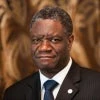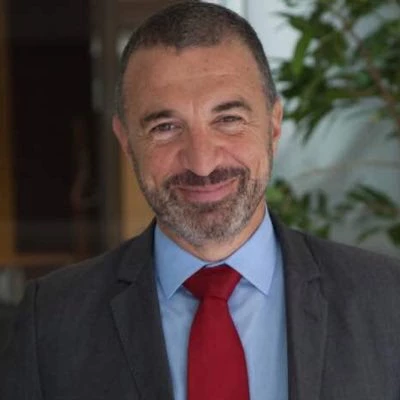 Pour un avenir sans violence : donner une voix et des soins aux survivantes
Pour un avenir sans violence : donner une voix et des soins aux survivantes
Esther was only 16 years old when her life changed forever. One day while collecting water outside of Bukavu in rural Democratic Republic of Congo (DRC), she was kidnapped, tied to a tree, and raped. After nearly four days of brutal torture, Esther managed to escape, only to be captured by another local man, who under the guise of rescue, proceeded to abuse her again. Eventually, she found her way to Panzi Hospital only to discover she was pregnant.
Sadly, Esther’s story is common. Gender-based violence is a global crisis: one out of three women experience physical or sexual violence in their lifetime. The rate of intimate partner violence is 34 percent higher in conflict-affected economies than in economies not afflicted by conflict. Violent conflicts have reached their highest levels in the past three decades, and women and children have experienced lasting impacts. Since the global outbreak of the COVID-19 pandemic, the UN reports that violence against women, particularly domestic violence, has risen in several countries.
According to Colonel Bodeli, the chief of police in the DRC’s South Kivu province, rebels see rape as an effective weapon of war: “The woman in Africa is a central axis of strength in the family and community. If you hurt and disrupt her confidence in life, you break down family life. If that permeates a whole society, they are less likely to stand up to oppressive rebels.”
War and conflict have always taken a disproportionate toll on women and children, and the impact can last for generations, hurting progress in health and education, as well as access to jobs. Today, the world is seeing the largest forced displacement crisis ever recorded, with women accounting for more than half of all displaced people.
These troubling facts should give us pause as they have significant implications on the fight against poverty. To turn the tide and help those most impacted, we must address the root causes of violence and provide holistic care. These efforts must entail a whole-of-society approach, with solutions coming from governments, communities, civil society, and the private sector to address the challenges that have been laid bare during the COVID-19 crisis.
This is why the World Bank is scaling up its engagements on gender-based violence in fragile and conflict states, including working with the Panzi Foundation and Hospital in the DRC. The World Bank’s goal is to shift social norms by promoting gender equality and behavioral change through strong partnerships with civil society organizations, with a focus on three critical areas.
The first step is to provide comprehensive care for the women who have suffered sexual violence.
For the team at Panzi Hospital and Foundation, this means meeting the survivors‘ needs through: clinical care and treatment of gynecological and physical injuries; psychological counselling; legal assistance; and socioeconomic support to survivors such as literacy training, small business management, and micro-credit programs.
Second, we are going beyond protecting women from situations of conflict, war and violence, to empower them to be part of the solution. According to the OECD, when women actively participate in peace- and state-building, the chances for achieving peace and resilience significantly improve. Providing transformative support for gender equality in fragile settings requires not only doing more, but doing things differently, including having a deeper understanding of the root causes of gender inequality and fragility. This includes investing in girls’ access to secondary education as part of a holistic approach to women empowerment.
To support gender equality and women’s empowerment in fragile and conflict settings, the World Bank is focused on providing opportunities for women to play positive roles in society and for their voice to be heard in the decision-making process. We are also pushing for more research to gain a deeper understanding of gender-based discrimination and harmful gender norms, as well as gender gaps in accessing economic opportunities.
Finally, we are investing in womento reverse the negative intergenerational impacts that conflict situations often bring. Evidence shows that when a mother controls resources, there is a stronger positive impact on children’s health and education than when resources are controlled by a father.
While we celebrate the many achievements of women in our society, we must also continue taking actions that put women at the center of breaking the poverty trap they fall into, especially under conditions of war and violence. Women like Esther demand our vigilance, respect, and support. She is now the mother of Josue, a healthy 1-year-old boy, and a survivor who stands in stoic dignity. We must reverse the negative intergenerational impacts that conflicts exact on society and forge a path toward safety and prosperity for all.




Join the Conversation